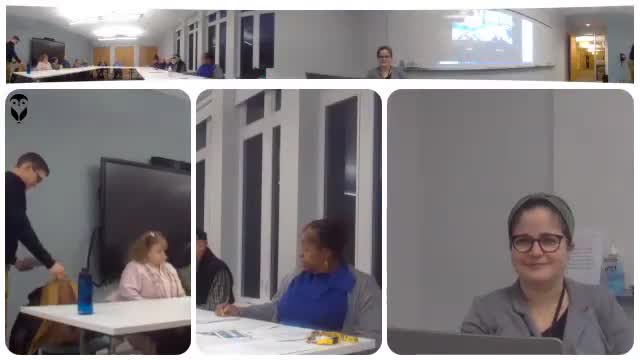Needham staff propose expanded senior and veteran property tax work-off program
Get AI-powered insights, summaries, and transcripts
Subscribe
Summary
Miles Tucker, support services manager in the Office of the Town Manager, told the Council on Aging that staff plan to propose combining Needham’s senior and veteran property tax work-off programs and to expand eligibility and benefits.
Miles Tucker, support services manager in the Office of the Town Manager, told the Council on Aging on an earlier meeting that staff plan to propose combining Needham’s existing senior property tax work-off program with a separate state-authorized veterans program and to expand eligibility and benefits.
The proposal would raise the program’s income eligibility to 80% of area median income (AMI) for both seniors and qualifying veterans, increase the maximum number of hours a participant may work to 125 (the statutory maximum), and tie the abatement amount to Massachusetts minimum wage rather than a fixed dollar cap. “By tying the rate instead of a fixed dollar cap, but to a total number of hours that’s tied to the minimum wage… it allows the program to be a bit more flexible,” Tucker said.
If adopted as proposed, the town’s program would replace the current senior program’s income limits (currently $45,000 for single households and $60,000 for two-person households) with 80% AMI. Tucker said the town’s 2025 estimates put 80% AMI at about $83,000 for a single person and about $95,000 for a two-person household. Under the current senior program the benefit cap is $1,500; under the proposed 125-hour cap at current minimum wage the gross maximum would be about $1,875 before payroll withholdings.
Why it matters
Town staff and board members said the changes would expand access for more older residents and allow Needham to administer one combined program rather than two separate tracks. Tucker said the consolidated program would continue to be administered by the Council on Aging, which he expects would centralize outreach, intake and coordination with other town departments.
Discussion details and limits
Tucker and members discussed several operational details that would affect who can participate and what kinds of work qualify:
- Only property owners would be eligible, consistent with the state general law Tucker cited. The program would not be available to renters. - The work must not be work performed by a full-time town employee; Tucker said, “The work cannot be work that is done by a full time employee of [the] town.” That restriction means departments and managers would need to identify accessory tasks that volunteers could perform. - Participants would receive a W-2; federal payroll taxes and FICA/Medicare would be withheld and the town would pay the employer-side contributions. Tucker said state taxes would not be withheld per current practice. - The annual program year would run Nov. 1 to Oct. 31, with annual certification in October so any abatement could be applied to the fourth-quarter tax bill. - The proposal would allow a participant who cannot perform the work personally to designate a representative to do the hours; Tucker said staff are investigating any statutory or local limits on who may serve as a representative.
Administration, outreach and capacity questions
Board members and attendees raised operational concerns Tucker said staff had already considered: availability of qualifying work (managers will have to inventory tasks), capacity for intake and payroll processing, how to publicize the program, and whether younger veterans who work full time would realistically be able to participate.
Tucker said the town would manage onboarding and timekeeping through department managers, with the Council on Aging consolidating applications and annual certification, and the treasurer’s office issuing checks to assessors as abatement credits. He also said town staff have studied other communities that run combined programs to inform the draft.
Funding and risk
Tucker said the program would be funded from the town’s overlay account, not a separate warrant article. He told the Council on Aging that historical overlay levels should cover likely early enrollment; staff will monitor expenditures and could recommend targeting tools such as income tiers if enrollment outpaced funding. He did not forecast a specific cap on participants but noted work opportunities could limit effective enrollment.
Next steps
Tucker said staff are refining the warrant article and will present it to the Select Board for deliberation on Feb. 25; he said the Select Board may decide whether to place the article on a special town meeting warrant in May. No formal town vote on the proposal had occurred at the time of the discussion.
Community comments and complementary programs
Questions from attendees touched on whether volunteers could be placed in schools or the library (Tucker said some communities had volunteers in schools before the pandemic and that the general law appears to permit such placements subject to the prohibition on replacing full‑time employees), whether home-based tasks could qualify, and how the town will publicize the program (suggestions included tax bill inserts, library and school outreach, and social media). Attendees also urged staff to consider forms and procedures used by other towns and to monitor the program year-by-year.
Closing
Tucker asked for feedback and said he would follow up with answers to several pending questions (for example, who may act as a participant’s representative and whether particular placements, such as tutoring in schools, would meet the legal limits). The Select Board’s review on Feb. 25 was the next scheduled public step; no final action had been taken yet.
